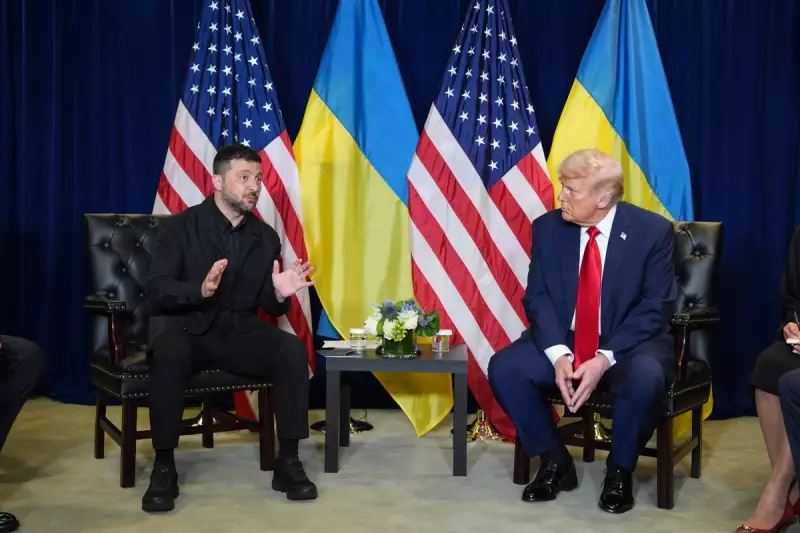
In a dramatic intervention, President Volodymyr Zelensky has declared that any peace plan orchestrated by Donald Trump that forces Ukraine to surrender land to Russia would lead to the country's effective destruction. The warning comes amidst growing anxiety in Kyiv over potential shifts in American foreign policy should Trump return to the White House.
A 'Very Primitive' and Dangerous Idea
Zelensky voiced his profound concerns during an address at the Kyiv-based Borys Grinchenko Kyiv University. He specifically targeted a rumoured proposal, which he described as a "very primitive idea", where Trump would allegedly compel Ukraine to cede Crimea and the occupied Donbas border areas to Russia in exchange for an end to the invasion.
"The concept is that we can give Putin Crimea and the Donbas, but it is a territory that belongs to us; it is our people," Zelensky stated emphatically. He argued that such an agreement would not bring genuine peace but would merely provide Russia with a strategic pause to rearm and launch a more devastating attack in the future.
The Stakes of Stalled US Military Aid
The Ukrainian leader's alarm is compounded by the critical holdup of a $60 billion US military aid package, which remains stalled in Congress. Zelensky revealed that the current shortage of artillery shells and air defence missiles has forced Ukrainian troops to ration ammunition, directly impacting their ability to hold the front line.
This delay is having immediate and severe consequences on the battlefield. Ukrainian forces are being outgunned by Russian troops, who are reportedly firing five times more shells daily. The situation is particularly dire for key cities like Kharkiv, which face relentless missile and drone attacks.
Trump's Ambiguous Stance and Putin's Advantage
While Trump has frequently boasted that he could end the war within 24 hours if re-elected, he has never publicly detailed his strategy. This ambiguity fuels fears in Ukraine that his solution would involve significant concessions at their expense, effectively rewarding Russian aggression.
Zelensky's warning underscores a central fear: that a Trump administration would prioritise a swift deal over a just and sustainable peace, leaving Ukraine vulnerable and undermining the entire international order based on sovereignty.
The situation presents a grim outlook for Kyiv, which is fighting for its survival against a larger adversary while its primary source of military support faces an uncertain future. The coming months, both on the battlefield and in the halls of American power, are likely to be decisive for Ukraine's fate.






